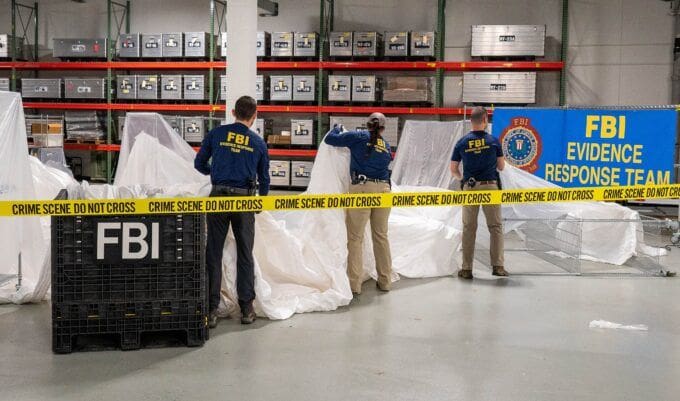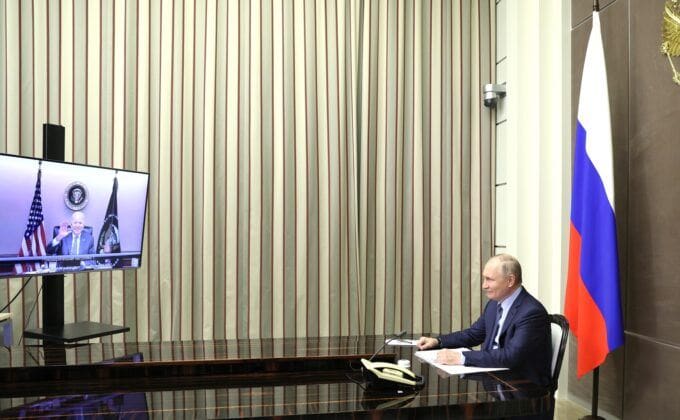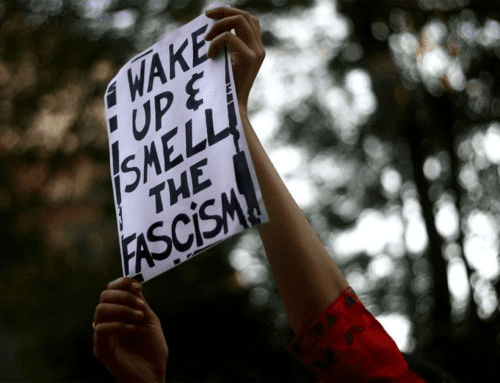

Balloongate: Lots of Hot Air and the Cold U.S./China Hotline


Photograph Source: Federal Bureau of Investigation – Public Domain
During the recent Balloongate, the United States Secretary of Defense, Lloyd J. Austin III, tried to call someone in the Chinese military to ease tensions. The fact that he apparently asked to speak to someone in the Central Military Commission instead of the Defense Minister is not crucial. What is of primary concern is that Beijing reported that Austin’s calls were rejected three times.
Direct communication between the defense ministers of the world’s leading military powers in the 21st century seems like a no brainer. Whatever tensions may exist between China and the United States, instant communication between the military leaders should be indispensable to guaranteeing that a major confrontation doesn’t begin because of some trivial misunderstanding.
The lack of direct communication between the two defense establishments should remind us of the importance of the creation of the U.S./Russian hotline during the height of the Cold War.
Formally known in the United States as the Washington–Moscow Direct Communications Link, the hotline was established in 1963 after the Cuban Missile Crisis. During the tensest moments of the Crisis, it took twelve hours for a message from the Soviet leader Nikita Khruschev to be received and decoded in Washington, an inordinate amount of time when the world was close to nuclear war. With both sides conscious of the need for improved rapid communication, the hotline was formally established by the signing of a “Memorandum of Understanding Regarding the Establishment of a Direct Communications Line” by representatives of the Soviet Union and the United States on June 20, 1963, in Geneva, Switzerland.
Why hasn’t some form of hotline been established between the United States and China? What are the leaders waiting for? Either the situation today is so dire that they are not even talking to each other about communicating, or neither side considers it necessary to establish a hotline because the situation is not dire enough. Both might explain why the Chinese refused Austin’s call three times.
A comparison of the establishment of the 1963 Russian/U.S. hotline and the Cuban Missile Crisis and the lack of communication between Austin and his Chinese counterparts raises several thoughts. (The fact that U.S. Secretary of State Antony Blinken met with a senior Chinese diplomat at the recent Munich Security Conference does not change the lack of communication between Austin and his counterpart or the establishment of better direct communication between Washington and Beijing.)
The importance of even a superficial comparison reflects notions of a cold war between China and the United States and the inherent risk of some military confrontation leading to a world war. The rather hysterical reactions to the balloons transgressing U.S. territory is somewhat similar to the hysteria about Soviet missiles being placed in the territory of an independent country at its request in what the United States considered its sphere of influence. There are obvious differences, but rough comparisons should point to the need for more direct communication.
First, the Cuban Missile Crisis focused on Soviet missiles in Cuba, approximately 90 miles south of Florida. Enemy missiles so close to the border of the United States does not represent the same level of danger as a balloon or balloons floating across U.S. territory. What should be noted is that the first balloon entered U.S. territory on January 28 and was finally shot down on February 4 off the coast of South Carolina. The balloon was spotted and allowed to cross the United States for seven days before it was destroyed. Other balloon-like objects were quickly shot down soon after.
Timewise, we are told that the United States learned that Soviet SS-4 medium-range ballistic missiles were being assembled for installation on October 14, 1962, after a U-2 spy plane flew over Cuba. No previous knowledge of the missiles’ presence is acknowledged. President Kennedy, we are told, was briefed on the missiles’ presence on October 16, leading to the thirteen day crisis that lasted until October 28, when the missiles were removed.
How long will the Balloongate crisis last between the U.S. and China? United States Secretary of State Antony Blinken cancelled his much-anticipated trip to China because of Balloongate. And tensions continued at the recent Munich Security Conference even though Blinken met with a high level Chinese official. “Relations between the two nations are at the lowest point in decades,” reported Ellen Ioanes from Munich. “And Saturday’s meeting [between Chinese Director of the Office of the Central Foreign Affairs Commission Wang Yi and Blinken] didn’t do much to improve the situation,” she added.
Concerning Balloongate, The Guardian headlined: “Beware: we could be entering a dangerous new era of US/China relations.” “Incidents like the Chinese spying balloon could too easily spiral out of control in the future, ending in disaster,” warned Christopher S. Chivvis in a follow-up description of Balloongate’s consequences.
As for comparing the U.S/Russia hotline and the current lack of hotline between the United States and China, Chivvis described how “Some analogous arrangements between China and the United States do exist today to prevent potential clashes at sea or in the air from inadvertent escalation. But these arrangements haven’t been working well…Beijing often doesn’t follow the agreed rules and has been reluctant to use military hotlines designed for emergency communication in a crisis.”
What is the real problem in establishing U.S./China hotline? Before China gives military aid to Russia or invades Taiwan, it seems obvious that some form of better communication is needed. How to get there should be a diplomatic priority on both sides. To paraphrase what is attributed to Winston Churchill: To not jaw-jaw could lead to war-war. Not a pleasant perspective.







